Advancing UN SDGs
MAKING AN IMPACT THAT MATTERS
In his world-celebrated 7 habits book series, acclaimed author and personal development guru, Stephen Covey, teaches to “begin with the end in mind”. AYO’s business strategy, from acquisition considerations to CSV initiatives, is informed by UN SDGs with the ultimate purpose to create value for all stakeholders in the value chain. Thus, when evaluating our performance, we look at the contribution of our activities towards the advancement of our prioritised SDGs in South Africa.
ZERO HUNGER
The UN report on the state of food security 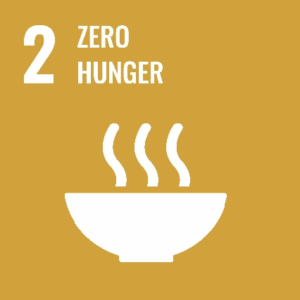 and nutrition in the world, released in November 2021 narrates that the number of people facing acute food insecurity in 2020-2021 has increased dramatically due to the COVID pandemic. The international confederation of independent NGOs Oxfam, which has been fighting hunger and inequality since World War II and is active in 70 countries today, identified South Africa this year as an “emerging extreme hunger hotspot” due to the sharp worsening of the food crisis in the country, which has led millions of people to the brink of starvation.
and nutrition in the world, released in November 2021 narrates that the number of people facing acute food insecurity in 2020-2021 has increased dramatically due to the COVID pandemic. The international confederation of independent NGOs Oxfam, which has been fighting hunger and inequality since World War II and is active in 70 countries today, identified South Africa this year as an “emerging extreme hunger hotspot” due to the sharp worsening of the food crisis in the country, which has led millions of people to the brink of starvation.
While AYO does not have traditional stronghold experience in this field, we could not remain impartial to such a serious emergency. In partnership with Ladles of Love, an established NPO supported by the Group in 2020 as well, the Company and our employees (in their personal capacities) donated generously of their time and financial resources to set a Guinness World Record by creating the world’s longest line of food cans. Celebrating Mandela Day 2021, the campaign saw the collection and arrangement of 6.7km long chain of more than 90 000 cans of food, subsequently distributed to more than 300 beneficiary soup kitchens and other organisations across the Cape Peninsula.
With food security concerns on the rise in South Africa, driven by not just the pandemic, but additional factors including droughts, floods and depleted soil quality, technologically advanced agricultural processes will become increasingly important. AYO is already looking at emerging international technologies used to increase farming yield and crop resilience with the intention of investing in such innovations in the medium term. These “impact investments” will benefit the Group’s shareholders, as well as drive positive economic growth and progress towards this critical SDG.
GOOD HEALTH AND WELLBEING
With the COVID pandemic still ravaging 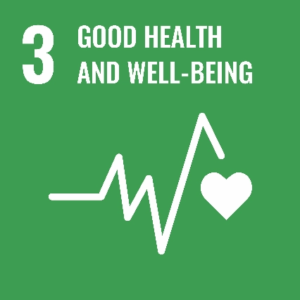 our communities after more than 18 months, preventing the spread of infections remains critical. While we have come a long way from the early days of PPE shortages, consistent supply of face masks, sanitiser and thermometers is still unaffordable for many underprivileged communities. A media report published on New Year’s Eve by Media24, announced that the Eastern Cape Department of Education did not have a budget to procure PPE for its 5 037 public schools in 2021, thus endangering the lives of thousands of pupils and teachers from the very onset of the academic year.
our communities after more than 18 months, preventing the spread of infections remains critical. While we have come a long way from the early days of PPE shortages, consistent supply of face masks, sanitiser and thermometers is still unaffordable for many underprivileged communities. A media report published on New Year’s Eve by Media24, announced that the Eastern Cape Department of Education did not have a budget to procure PPE for its 5 037 public schools in 2021, thus endangering the lives of thousands of pupils and teachers from the very onset of the academic year.
AYO heeded to the announcement and purchased over 30 000 face masks, 500 infrared thermometers and over 600 litres of hand sanitiser, distributing the goods to 15 public schools in the East London area. The generous donation brought relief, if not even a few joyful tears to Themba Kojana – the Eastern Cape Department of Education superintendent–general. He shared that while many corporates have been assisting government with providing PPE for educational institutions, the donations were usually distributed within the close physical proximity of the donors, as delivery logistics to rural and outlying regions were adding complexity. Thus, while most Western Cape and Gauteng schools were sufficiently well prepared to offer a safe learning environment to their pupils in 2021, that wouldn’t have been possible without AYO’s help in the Eastern Cape.
We believe that good health and wellbeing of all citizens is paramount to sustainable economic development of the country. Therefore, healthcare is a strategic business priority for AYO with the Group’s operating entity (HST) playing significant role in the digitalisation of public health sector. Further complimentary acquisitions in the field of medical technology services are being considered in the medium to long term, while donations of this kind will remain part of AYO’s shared value creation strategy for the duration of the pandemic.
QUALITY EDUCATION
Access to quality education has long 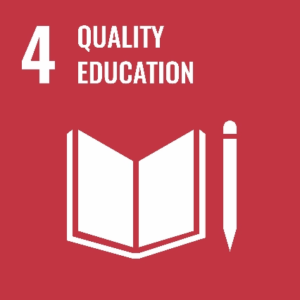 been the core focus on AYO’s shared value activities. We believe that “digital education” can be a game changer for young people, levelling the playing field and providing them with economic opportunities that would otherwise be unavailable to them. In addition to our long-standing partnerships with SAME, Masinyasane and Sakhikamvu foundations, which we continued to support in this reporting period, AYO contributed R2 million to Thabo Mbeki Foundation’s ProFuturo roll out drive.
been the core focus on AYO’s shared value activities. We believe that “digital education” can be a game changer for young people, levelling the playing field and providing them with economic opportunities that would otherwise be unavailable to them. In addition to our long-standing partnerships with SAME, Masinyasane and Sakhikamvu foundations, which we continued to support in this reporting period, AYO contributed R2 million to Thabo Mbeki Foundation’s ProFuturo roll out drive.
Founded in 2016, ProFuturo is a digital education programme designed to narrow the education gap in the world by improving the quality of education for millions of children living in vulnerable environments. The programme is present in 41 countries in Latin America, Africa, Carribean and Asia and has trained near 1 million teachers and benefitted over 20 million children in these regions. In 2021, Thabo Mbeki Foundation introduced the programme to South Africa and with AYO’s assistance rolled it out to 45 schools in Mpumalanga and Eastern Cape. 713 teachers have been provided with tools and training to enable remote teaching in the two regions.
AYO will continue to support this important project going forward, as it is perfectly aligned with the Group’s strategic direction and targeted outcomes. A two-month training programme designed to educate and onboard 1 400 young people between the ages of 13 and 18, alongside educators, in the field of cyber security, has already been developed for 2022. Co-ordinated by the Thabo Mbeki Foundation, the project will involve a partnership with Facebook Africa supported iLizwe Lam and Digify Africa.
“Digitalisation of education contributes to narrowing the educational gap in the world and supports country development and social equity.
MAGDALENA BRIER, PROFUTURO MANAGING DIRECTOR
GENDER EQUALITY 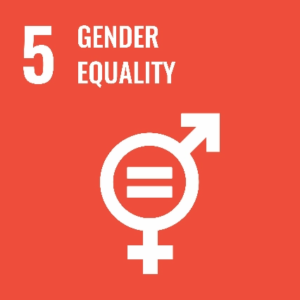
Although South Africa is often characterised as having some of the most progressive legislation in the world when it comes to gender equality, these constructive laws generally fail to infiltrate at grassroot level. Beyond the disproportionally widespread and intense gender-based violence regularly witnessed in the country, a World Economic Forum report from 2018 reveals that South Africa has the sixth largest pay gap between men and women in Africa. This, however, is not the case at AYO.
In July 2021, South Africa’s leading gender empowerment brand, Top Women Leaders (currently in its 17th edition), supported by the Commission for Gender Equality, recognised AYO as the leader of gender empowerment and transformation in the South African ICT sector. This honorary accolade is awarded on the basis of tangible and measurable criteria, including female ownership and shareholding, female representation in executive and senior management level, women focused skills development initiatives and female empowerment company policies.
AYO is proud and honoured by this achievement and will continue to promote gender equality and female empowerment going forward. Additionally, the Group maintains its long-standing partnership with UNICEF’s TechnoGirl initiative, which introduces high school girls to careers in STEM and opens doors to traditionally male-domineered fields such as industrial engineering and computer programming.
DECENT WORK AND ECONOMIC GROWTH 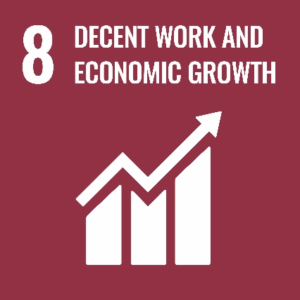
Access to full and productive employment and decent work for all citizens has been a priority in South Africa for decades. Unfortunately, the COVID pandemic has reversed much of the progress achieved in this regard. A World Bank report published in July 2021 notes that the number of employed people in South Africa has fallen by nearly 1.5 million in the last year and the wages of workers who still had jobs had fallen by 10-15%. SMEs and the “informal economy” have been hit even harder and government relief has proven insufficient to counteract the economic disaster.
Although AYO, like all companies, was adversely affected by the pandemic, our employees and partners were central to our “business continuity during the crisis” thinking and decisions. We prioritised the importance of sustaining our team and are pleased that no employees were retrenched as a result of COVID. While nominal salary reductions were implemented initially (in the previous reporting period), these were offset by the TERS fund and full remuneration payments were restored within a three-month period. Additionally, the Group has increased its SED spend for the financial year, in order to alleviate some of the pressure from SMEs within our supply chain.
We believe that in order for us, as a Group, to succeed and create value, we need to operate within a thriving economy. Therefore, promoting SDG 8 will remain a key consideration in our strategic development process. We view SMEs as the lifeblood of South Africa’s economy and are amplifying our focus on enterprise development programmes, through which we will strive to strengthen the SME sector and promote economic inclusivity and growth in the medium term.
INDUSTRY, INNOVATION AND INFRASTRUCTURE 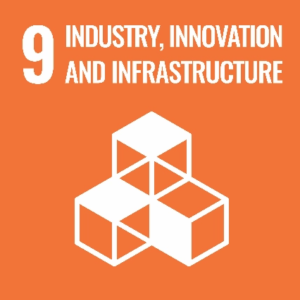
Development goal number nine is strongly aligned to AYO’s core business and thus, carries particular importance to our shared value creation strategy. Inclusive and sustainable industrialisation can unleash dynamic and competitive economic forces that generate employment and income. And with the exponential proliferation of technological innovation observed in today’s world, the achievement of this critical goal is now more plausible than ever. While the global pandemic has hindered progress on many SDGs, innovation and digitalisation of many industries has, in fact, accelerated in response to the crisis.
A notable achievement during the reporting period was the launch of the inaugural AYO Scaling Africa Series Challenge in partnership with SA Innovation Summit. The competition was designed to recognise and support innovative businesses and entrepreneurs whose products and services aim to solve critical African problems through technology. Overwhelming interest in the initiative saw the application of over 50 different businesses from drone manufacturer to mobile marking app supporting educators and even human waste recycling programme. A black woman owned community-based security response business, however, won the admiration of the judges and the grand prize of R100 000.
Over and above the monetary prizes, finalists in the challenge gained invaluable brand exposure, as well as opportunities to meet with the investment community and secure funding to further scale their operations. We believe initiatives of this calibre are essential to sustainable growth and development and will become instrumental in finding solutions to pertinent challenges on the continent. Thus, AYO’s medium term vision is to expand the concept to the rest of Africa and potentially globalise it in the long term.
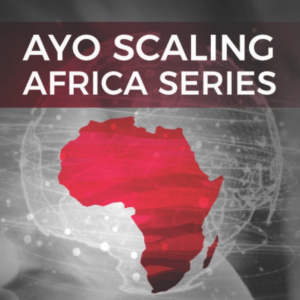
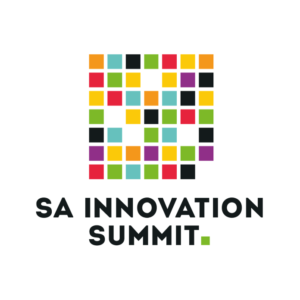
REDUCED INEQUALITIES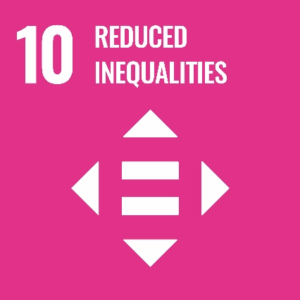
Reducing inequality within and among countries is a challenging and complex objective. It requires the adoption of progressive fiscal, social and economic policies on government level with simultaneous creation of large-scale sustainable income opportunities by the business sector. The UN has observed that while the international community has made significant strides towards lifting people out of poverty, inequality still persists and disparities remain, particularly in Africa, in terms of access to health and education services.
The strain on South Africa’s public healthcare and education systems since the onset of the pandemic has clearly demonstrated that we still have a very long way to go in providing equal quality of such essential services to all our citizens before we can strive to draw level with developed economy peers. Technology is the logical equaliser in this regard, and we believe that increased access to digital tools and systems is critical to achieving SDG 10 in the country. Through our core business operations, we strive to shorten the digital divide in all sectors and are particularly proud of our achievements in the fields of healthcare and education. AYO’s subsidiary, HST, has played a critical role in the integration of public and private laboratory systems, making across-the-board COVID testing and results sharing possible. Sizwe Africa IT Group, on the other hand, has made remote learning in the Eastern Cape possible, providing a sustainable and cost-effective solution to the Department of Education.
AYO’s core business focuses on technologies that may appear outdated in the context of global ground-breaking innovations but are instrumental in creating a digital infrastructure that promotes economic advancement and reduces inequalities in South Africa. Thus, we continue to search for acquisition targets whose solutions enable and empower critical industries, such as agriculture, healthcare, communications, logistics and education. We believe that digitalising these sectors will create the greatest shared value in the medium and long term in Africa.
CLIMATE ACTION 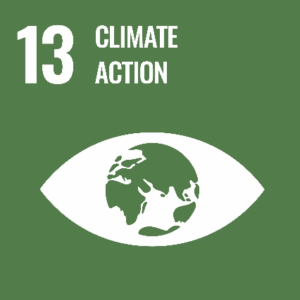
Climate change is real and its effects are palpable in every corner of the world. As a fossil fuel-reliant country, South Africa is particularly vulnerable and urgently needs to prioritise this goal and reduce its carbon footprint. Additionally, renewable energy harvesting and utilisation can address a number of acute local challenges from deficient power supply to high unemployment rate and poor air quality. Persuasive collective action is imperative to protect both our environment and economy and create value for our and future generations.
While raw materials mining and production processes are the main drivers for South Africa’s high carbon footprint, the logistics chain is seen as the next major contributor, adding over 10% of the world’s emissions. AYO’s interests in the digital retail and last mile logistics space, albeit small, compel us to highlight the importance of this SDG and set a precedent in the fight against climate change. Our holistic approach aims to address the issue in an all-encompassing way from reducing physical store visits (and by extension personal carbon emissions) to electronic paperless ordering process and environmentally friendly packaging. Further, the Group is looking into the implementation of digital marketplaces that will connect buyers and sellers based on physical proximity, thus reducing transportation time, cost and impact.
Combating climate change is deeply integrated into AYO’s long term strategic plan. This includes acquisitions in the domains of green energy production and environmental technology components mining, investigating local manufacturing of electric vehicle batteries and focused product development in the logistics space.
“Great leaders don’t set out to be leaders… they set out to make a difference. It’s never about the role, always about the goal.
JEREMY BRAVO
RESPONSIBLE CONSUMPTION AND PRODUCTION 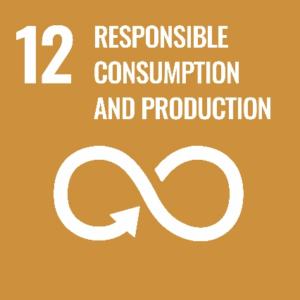
Achieving economic growth and sustainable development requires that we urgently reduce our ecological footprint by changing the way we produce and consume goods and resources. The rapid pace at which technology has been advancing in the last two decades has led to a much shorter lifespan for our electronic devices and with proliferating “technology consumption”, e-waste has emerged as the fastest growing waste stream. Of particular concern is the high toxicity of e-waste with its concentration of hazardous elements like mercury, lead and cadmium.
As a trailblazer in the South African technology sector, AYO leads by example and in 2021 launched its inaugural e-waste recycling campaign. Test rolled-out in our own office, the drive saw the collection of unused and discarded electric and electronic appliances from cellular phones to microwaves and vacuum cleaners. An interactive educational presentation raised awareness of the statistics and hazards associated with e-waste amongst staff, while the collected equipment was recycled for materials recovery by an external campaign partner. The launch campaign enjoyed great support and participation by our environmentally aware team who contributed nearly 500 litres of e-waste.
In 2022 the e-waste awareness and recycling campaign will be extended to all AYO Group and associated companies, as we strive to promote responsible technology consumption. In the medium term, we are considering the acquisition of an e-recycling operating entity, which will enhance our ability to create shared value in a more meaningful way and contribute to this important developmental target at scale.
PARTNERSHIPS FOR THE GOALS 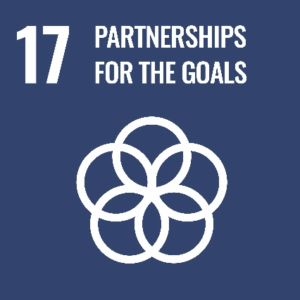
The premise of SDG 17 is that a successful sustainable development agenda requires cross country and cross sector collaboration and partnership. AYO’s business model, in itself founded on those very same principles, can be used as a case study in promoting this important objective by industry peers. The Group’s competitive advantage stems from its symbiotic relationships with its customers, which have deeply entrenched our services into the clients’ business operations.
The goal highlights the importance of collaboration to solve global challenges and the need to mobilise international financial resources for developing economies. The technology sector is both an enabler and a beneficiary for this objective, providing the communication tools and platforms for discussions, while simultaneously providing first-hand examples of successful cross-continent implementations. The diversity of companies within the AYO stable enables us to apply these very principles in our own microcosm and translate learnings from one client industry into another or adapt global best practices to our unique market requirements. Our aim is to replicate this successful model into the rest of the African continent in the medium term and we expect to report on progress in this regard as soon as the upcoming reporting period.
Being an investment vehicle itself, AYO also provides a platform for international investors to contribute to the advancement of this SDG by offering a compelling investment case for globally conscious financiers. Thus, our long term aspiration is to transform the AYO brand into an internationally attractive investment package that provides direct foreign investors with a structured and financially savvy channel to contribute to sustainable development on the African continent and create inclusive universal value.
